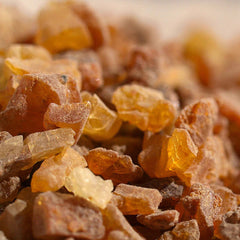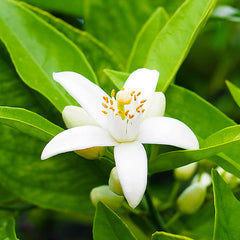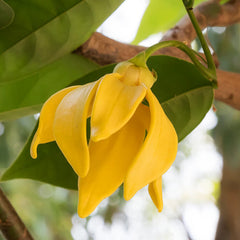Do Oriental Perfumes Last Longer Than Floral Perfumes?
Click For Affordable Inspired Perfume Alternatives
Perfume is more than just a fragrance; it is an expression of personality, mood, and style. When choosing a perfume, one of the most common questions fragrance enthusiasts ask is about longevity—specifically, whether certain types of perfumes last longer on the skin than others. Among the various categories, Oriental and floral perfumes are two popular choices, each with distinct scent profiles and characteristics. Understanding their differences in longevity can help you select the perfect fragrance for any occasion. In this article, we will explore whether Oriental perfumes tend to last longer than floral perfumes, examining their composition, scent profiles, and factors influencing their staying power.
Do Oriental Perfumes Last Longer Than Floral Perfumes?
Understanding the Composition of Perfumes
To comprehend why some perfumes last longer than others, it is essential to understand their basic composition. Perfumes are generally categorized based on the concentration of aromatic compounds and the types of scent notes used. The primary categories include floral, oriental, woody, fresh, and chypre perfumes. Each category has unique characteristics that influence their longevity and projection.
Oriental perfumes are characterized by warm, rich, and spicy notes, often containing ingredients like amber, vanilla, spices, and resins. These ingredients tend to have a dense and oily nature, which contributes to their lasting power. In contrast, floral perfumes are predominantly centered around fresh, light, and often more volatile flower notes such as jasmine, rose, lily, and peony. While floral scents can be delicate and beautiful, they sometimes have a shorter lifespan compared to their oriental counterparts.
Longevity of Oriental Perfumes
Oriental perfumes are renowned for their longevity and sillage. The rich, resinous, and spicy components used in these fragrances tend to cling to the skin longer, slowly releasing their scent over time. This results in a perfume that can last from 8 to 12 hours or even longer, making it ideal for evening wear or special occasions.
-
Ingredients Contributing to Longevity:
- Resins (amber, myrrh, benzoin)
- Vanilla
- Spices (cinnamon, cardamom)
- Oils and absolutes that have a dense molecular structure
- Factors Enhancing Longevity: Proper skin hydration, application on pulse points, and the perfume's concentration (e.g., Eau de Parfum or Parfum) can further extend the wear time of oriental fragrances.
Due to their composition, oriental perfumes typically have a slow evaporation rate, allowing the scent to develop gradually and linger longer on the skin. This makes them a popular choice for those seeking a perfume that remains noticeable throughout the day or night.
Longevity of Floral Perfumes
Floral perfumes, especially those with predominantly fresh or light floral notes, tend to have a shorter lifespan. Their ingredients are often volatile, meaning they evaporate quickly, which can result in a scent that lasts anywhere from 3 to 6 hours. However, this can vary significantly depending on the specific flower notes used and the perfume's concentration.
-
Ingredients Influencing Longevity:
- Fresh floral notes (e.g., lily of the valley, magnolia)
- Light floral absolutes and extracts
- Essential oils with high volatility
- Strategies to Improve Longevity: Using a matching scented body lotion or layering with other products, as well as choosing higher concentration versions like Eau de Parfum, can help floral perfumes last longer.
While floral perfumes are often appreciated for their lightness and freshness, their quick evaporation means they may require reapplication throughout the day to maintain their presence.
Comparing the Longevity: Factors at Play
While general trends suggest that Oriental perfumes tend to last longer than floral perfumes, several factors influence this outcome:
- Perfume Concentration: Parfums and Eau de Parfums usually last longer than Eau de Toilettes or Eau de Cologne, regardless of the category.
- Ingredients Used: Resins, vanilla, and spices in Oriental perfumes inherently have a more enduring scent profile than volatile floral notes.
- Application Method: Spraying on pulse points, skin hydration, and layering can significantly extend a fragrance's wear.
- Skin Type: Oily skin tends to retain fragrances longer than dry skin, impacting longevity across all perfume types.
- Environmental Factors: Humidity, temperature, and wind can affect how long a perfume lasts.
Thus, while Oriental perfumes generally have an edge in longevity, individual experiences may vary based on these factors. It’s also worth noting that some floral perfumes are formulated with fixatives to enhance their staying power, bridging the gap between the two categories.
Choosing the Right Perfume for Longevity
If longevity is your primary concern, here are some tips when selecting perfumes:
- Opt for Eau de Parfum or Parfum Concentrations: These contain higher percentages of aromatic oils, offering longer-lasting scents.
- Look for Ingredients Known for Durability: Resins, vanilla, amber, and spices tend to linger longer on the skin.
- Layer Your Fragrance: Use body lotions, deodorants, or shower gels with similar scent profiles to reinforce the fragrance and enhance longevity.
- Apply Properly: Spray on pulse points such as wrists, neck, behind the ears, and chest for optimal results.
Ultimately, both Oriental and floral perfumes have their unique appeal and suitable scenarios. Understanding their composition and how they interact with your skin can help you choose fragrances that last longer and suit your personal style.
Conclusion: Which Lasts Longer—Oriental or Floral Perfumes?
In general, Oriental perfumes tend to last longer than floral perfumes due to their rich ingredients like resins, vanilla, and spices, which have a slow evaporation rate and dense molecular structures. Their warm, spicy, and resinous notes enable them to cling to the skin longer, making them ideal for those who want a lasting scent experience. Floral perfumes, especially those with light, fresh, and volatile flower notes, often have a shorter lifespan but offer a delicate and fleeting elegance.
However, the longevity of any fragrance ultimately depends on factors such as concentration, application method, skin type, and environmental conditions. By choosing the right concentration, layering, and application techniques, you can maximize the wear time of your favorite perfumes—whether they belong to the Oriental or floral category.
So, if longevity is your top priority, Oriental perfumes are generally the better choice. Yet, for those seeking a light, refreshing scent that offers elegance for a shorter duration, floral perfumes remain an excellent option. Whichever you prefer, understanding the nuances of each fragrance type can help you make informed choices and enjoy your signature scent longer.
Buy Perfumes - Best Online Retailers
Click For Affordable Inspired Perfume Alternatives
Click For The Best Niche Perfumes & Decants
Pheromone Perfumes - Confidence, Attraction & Appeal - Click For More
Home Fragrances & Candle Warmers - Click To Scent Up Your Spaces Today!



